The Best Acoustic Guitar Pickups (Active & Passive) 2023
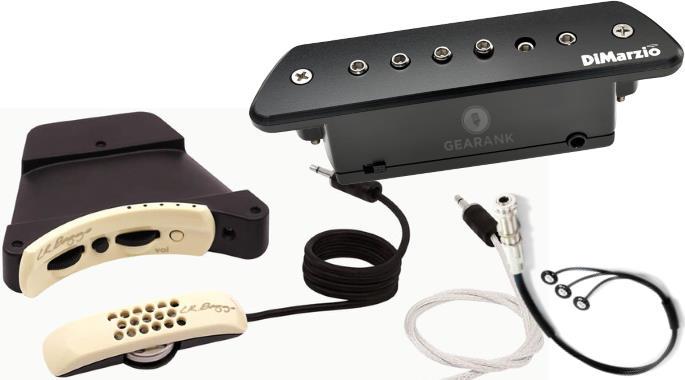
Author & Contributors
Alexander Briones
I have been writing about and researching music gear for many years, all while serving as a music director at my local church. I engage in guitar playing and singer-songwriter stints, in addition to mentoring young musicians and teaching guitar and bass.
The Best Passive Acoustic Guitar Pickups
K&K Pure Mini
Cons
- Lacks high-frequency sparkle
Pros
- Mellow and warm voicing
- Natural and responsive
- Transducer design pickups body vibrations
The K&K Pure Mini Passive pickup is a transducer. What this means is that it picks up the vibrations of the body of your instrument rather than its strings, which results in a more natural and open tone.
It’s great if you’re serious about getting a genuine acoustic tone, rather than the more processed sound of a piezo or soundhole pickup. It has a mellow and natural sounding tone that works great for dynamic and intricate playing. It also has a fuller sound with less of the pick attack compared to conventional pickups. Its warmer tone makes it a good solution for taming bright sounding guitars.
Given its warm tone, it won't have the same upper frequency sparkle as piezo pickup systems, and it also doesn't have a cutting midrange. Be aware that if your guitar is naturally dark sounding, you may need additional equalization on your preamp. Tweak it properly and you will be treated to natural sounding acoustic tone. Note that installing this pickup requires some modification done on the body of your acoustic.
For guitars that have too much of an edge when strummed, the K&K Pure mini is a good pick.
Key Features
- Type: Transducer/Contact
- Required Mods: Endpin, Gluing the Contacts to the Soundboard
- Installation Difficulty: Moderate
- Controls: None
| Website | Source | *Rating Value |
| YouTube | Acoustic Life | 96/100 |
| LukeSniper | Luke | 95/100 | Acoustic Guitar Forum | Aussie Matt | 90/100 |
DiMarzio Black Angel DP234
Cons
- Lacks the trebly bite of piezos
- Lacks body resonance
Pros
- Responsive to playing dynamics
- Natural balanced voicing
- Can be used without modifications
- Feedback resistant
Magnetic sound hole pickups have been with us for a long time now, and as such is considered as old tech when it comes to amplifying acoustics. Still, many prefer the convenience and non-intrusive design of magnetic pickups, the DiMarzio Black Angel is a great example - providing good acoustic amplified sound without requiring you modifications on your acoustic guitar body.
One downside of magnetic pickups is that they can sound harsh, much like an electric guitar would. But the Black Angel was able to work around this common issue by using a rare earth magnet, which better captures the nuances of your playing. This results in a more natural balanced sound than what you'd expect from a magnetic pickup, and does not have the "quack" problem of piezo pickups.
It is also very responsive to your pick attack, allowing you to utilize more dynamic variations as you play. And being a magnetic pickup, it is not as prone to feedback as other pickup types. The downside though is that you won't get the sparkly treble of piezos, and it lacks the body resonance that transducers can provide. But since it has a built-in phase switch, you can mix it up with other pickup types to get a fuller acoustic sound.
Note that the Black Angel is meant for guitars with a 3.5" or larger sound hole. And there is an option to make it a permanent installation by utilizing the included cable with end pin.
The DiMarzio Black Angel is a great pick if you want a intrusive way of amplifying your acoustic guitar.
Key Features
- Type: Magnetic Soundhole Mounted
- Required Mods: Endpin (Optional)
- Installation Difficulty: Easy
- Controls: Phase switch
| Website | Source | *Rating Value |
| Guitar World | Paul Riario | 100/100 |
| YouTube | Acoustic Life | 94/100 |
The Best Active Acoustic Guitar Pickups
LR Baggs iBeam Active
Cons
- Limited to just volume control
- Best installed by a luthier
Pros
- Transparent warts and all sound
- Balanced voicing similar to miked acoustics
- Responsive to playing dynamics
The LR Baggs iBeam is a transducer pickup that attaches to the bridge plate of your guitar (where you poke your strings into). It sits directly in front of the ball end of the strings (towards the tuning pegs), which allows it to mimic the response of a microphone.
Being a transducer, it captures top vibration, which allows it to reproduce a fuller and natural sound. It has good bass and treble balance, without the excess zing that's associated with piezos. It produces a sound more akin to closed-miking setups, transparent, allowing the natural voicing of your guitar and your playing style to come through. Strings ring and sustain naturally, and small changes in the way you pick or strum the strings are well represented.
On the flip side, it doesn't improve on the natural sound of your acoustic, and this pickup is not meant for cutting through a busy band or ensemble. For an active pickup, there's not much control provided other than volume.
Note that it might not fit into some guitar bridges, and proper positioning of the pickup under the bridge plate is a challenge. For this reason, it is recommended to consult with a luthier if you're looking to get this pickup.
If you're looking for natural sounding acoustic tones, then this is definitely worth a closer look.
Key Features
- Type: Transducer / Contact
- Required Mods: Endpin, Gluing to Bridge Plate
- Installation Difficulty: High
- Controls: Volume
| Website | Source | *Rating Value |
| Guitar Interactive | Editor | 90/100 |
LR Baggs Anthem Tru-Mic Microphone/Piezo and Active
Cons
- Complex controls
- Best installed by a luthier
Pros
- Blend mic and piezo sound
- Can go from cutting tone to warm miked sound
- Good feedback suppression
- Versatile controls
The LR Baggs Anthem Tru-Mic Microphone / Piezo pickup system features an in-guitar microphone combined with piezo sensors - this combination makes it suitable for both steel string and nylon string guitars. It is similar to the Anthem SL, only this one has more control options.
It allows you to adjust how the sound of the pickup and microphone are mixed, along with other useful controls that include phase, volume, battery check, and there's also a mic gain control that usually have to set once to match your preference.
Piezos get a bad rap for sounding nasal and harsh but in the right context, such as a dense band mix, a blend of the piezo tone allows your guitar to carve its own space in a dense mix. And since you can blend in the microphone pickup, you have the versatility of pushing and pulling back on your tone as needed by the musical part you are playing. The microphone pickup does a good job of adding in the natural air and body of the acoustic guitar, which can be easily managed via the controls. It literally gives you the best of both worlds, but you'll have to learn how to balance and tweak the two pickups to make the most of it.
For a pickup and preamp system with a mic, the Anthem has great feedback suppression. This is important for pros who regularly play on stage.
Note that the piezo pickup alone can be too trebly, so you'll have to tweak EQ as you blend in the mic. Using the mic exclusively runs the risk of feedback. And given its complex setup, installation can be a bit tricky. Best to have the installation done by a luthier.
If you're a guitar player in a band or ensemble and want a pickup that can help you cut through but still blend in some natural tonalities, the LR Baggs Anthem Tru-Mic Microphone / Piezo system is a great fit for your goals.
Key Features
- Type: Piezo / Microphone
- Required Mods: Endpin, Setting Pickup in Bridge, Mounting Soundhole Control
- Installation Difficulty: High
- Controls: Volume, Mix, Phase, Battery Check, Mic Level
| Website | Source | *Rating Value |
| YouTube | Worship Tutorials | 95/100 |
| Acoustic Guitar Magazine | Doug Young | 92/100 |
Things to Consider When Buying Acoustic Guitar Pickups
Figuring out which pickup is going to work best for you requires that you know a few key pieces of information. If you feel like you don’t know enough about acoustic guitar pickups to make an informed decision, or you just want to brush up on your knowledge before you pull the trigger, check out the sections below.
Types of Acoustic Guitar Pickups
There are four main types of acoustic guitar pickup, all of which are explained below.
Piezo
Soundhole
Transducer/Contact
In-Guitar Microphone/Blended Pickup
Pickups That Require Guitar Modifications
The very first thing you want to consider before you purchase a pickup is whether you’re willing to modify your guitar to install it (and have the means to do so). There are pickups that require modification in order to install, which you may not want to do if you have a guitar with sentimental value.
Piezo pickups always require modification because of how they’re designed, and most soundboard transducers do as well. Soundhole pickups, with the L.R. Baggs being a notable example, generally don’t require modification because you can simply drape the cord out of the soundhole. With that being said, many of these pickups allow you to do both.
Here is a video that gives you a good idea of what's involved if you're considering modifying your guitar by yourself:
Feedback and Acoustic Guitar Pickups
Feedback is a loop of sound caused by resonance. A frequency goes through an amplifier or a PA Mixer, the resulting tone is then captured by your pickup, then it is amplified further. This goes on until the initial frequency is the only thing coming out of your speakers, and is really unpleasant to listen to.
Acoustic guitar pickups are very sensitive to feedback, though this varies based on the type of pickup. As a basic rule, the more your pickup “hears” the more sensitive it is. So, for example, a pickup with a built-in microphone is going to be more sensitive to feedback than a piezo. The more frequencies “heard” by a pickup the higher likelihood of feedback, so the pickups that most accurately reproduce your acoustic tone are generally more likely to cause feedback.
Here’s a table that shows a rough estimate of feedback risk for each type of pickup:
| Pickup Type | Feedback Risk |
|---|---|
| Piezo | Low |
| Transducer | Medium/High |
| Soundhole | Low/Medium |
| Microphone | High |
Active vs. Passive
When you’re shopping for an acoustic pickup you’re going to hear the terms “active” and “passive’ thrown around a lot. The difference between the two basically boils down to the fact that one is externally powered (almost always by a battery) to boost the signal and the other is not. Active pickups are the former, passive pickups are the latter.
The cool thing about active pickups is that you’re basically good to plug into any P.A. or acoustic amp around. Because passive pickups don’t have the boost that active pickups do the signal is weak, which results in a squashed tone and a very quiet output. Most P.A.’s and acoustic amps can compensate for this, but there are going to be cases where you need to get an acoustic preamp or active D.I. box to get a strong enough tone.
The only drawback to active pickups is that they usually don’t function without a battery. Thankfully, it’s really easy to compensate for this. All you really need to do is make sure that you always carry a spare battery.
Amplifying Nylon String Guitars
Nylon string guitar players usually fall into two camps, classical/flamenco musicians who are looking for a really natural tone and people who just prefer the feel/response of a nylon over that of a steel string. If you’re really dedicated to getting a natural tone, you’re going to be happiest with an in-guitar microphone or a microphone and pickup combo.
If you’re not as particular about your tone, your best bet is going to be either a transducer or a piezo. Transducer pickups will sound more natural, but are a bit more expensive. Piezo pickups are cheaper, and while they won’t sound quite as natural as a transducer you can still get a good tone.
The only pickup type that really wouldn’t work well with a nylon string guitar is a soundhole pickup. Because nylon isn’t magnetic you’re not going to get any output on the treble strings, which makes this type of pickup basically useless for nylon string instruments.
Best Acoustic Guitar Pickup Selection Methodology
The first edition was published in 2017.
We looked at all acoustic pickup systems that are being sold by major online American music gear retailers, then selected the most popular and highly rated models to form a short-list of 33, you can see them in the Music Gear Database. We then collected and analyzed close to 9000 relevant ratings, reviews, comments and recommendations, including the most recent ones. All these data were then fed to the Gearank Algorithm, which produced the rating scores out of 100 that we used to select the highest rated active and passive systems which we recommend above. For more information about our methods please read How Gearank Works.
About the Author and Contributors
Here are the key people and sources involved in this guide's production - click on linked names for information about their music industry backgrounds.
Lead Author & Researcher
Alexander Briones
I have been writing about and researching music gear for many years, all while serving as a music director at my local church. I engage in guitar playing and singer-songwriter stints, in addition to mentoring young musicians and teaching guitar and bass.
My first acoustic guitar came with a detachable magnetic pickup that didn't really sound good. These days, the quality of detachable pickups have improved dramatically, as showcased by the DiMarzio Black Angel. Hybrid mic plus piezo systems are also very much in these days, with the popularity of percussive acoustic guitar playing.
Contributors
Raphael Pulgar: Supplemental writing.
Jason Horton: Editing and Illustrating.
Media
Main/Top Image: Created by Gearank.com using photographs of the LR Baggs Anthem, DiMarzio Black Angel and K&K Pure Mini.
The video has been embedded in accordance with YouTube's Terms of Service.
The individual product images were sourced from websites, promotional materials or supporting documentation provided by their respective manufacturers.



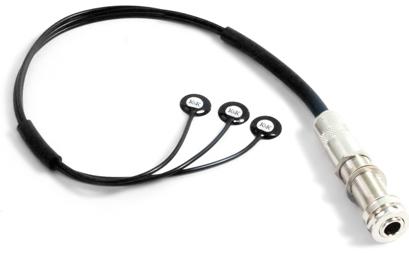
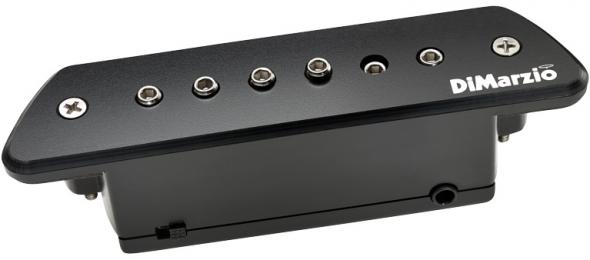
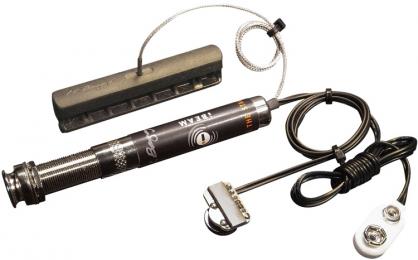
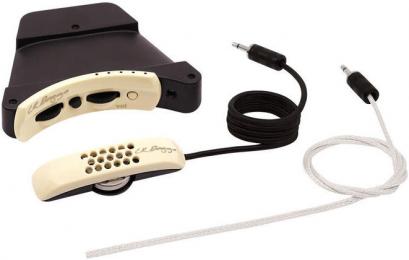
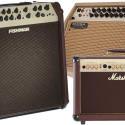
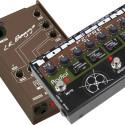
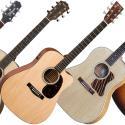
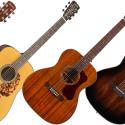
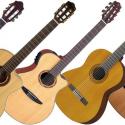
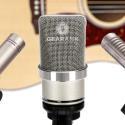
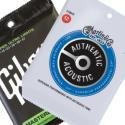
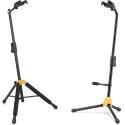
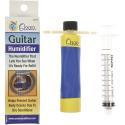
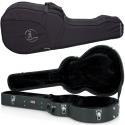
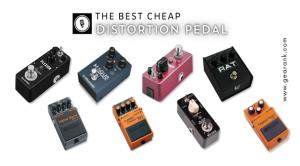
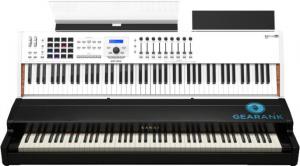
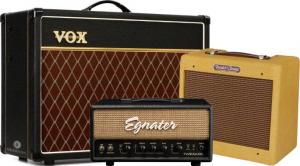
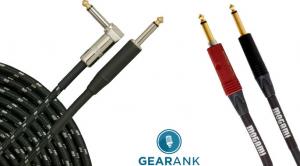
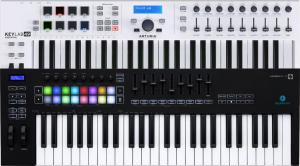
Comments
The following pickups came
Submitted by Jason Horton on
The following pickups came off our recommended list when we published the December 2022 Edition:
Publication of our September
Submitted by Jason Horton on
Publication of our September 2021 Edition resulted in the following pickup systems coming off the recommended list above:
As a result of our September
Submitted by Jason Horton on
As a result of our September 2020 update the following came off the recommended list above: Seymour Duncan SA-6.
I'm looking for a review of
Submitted by Mark Young (not verified) on
I'm looking for a review of pickups with on-board preamp / EQ / volume adjustment for gigs.
Your reviews are way off base
Submitted by Moonrocket (not verified) on
Your reviews are way off base. The absolute best acoustic guitar pickup is the Sunrise. None of the pickups you list come close and I know that for a fact because I’ve had every single one. The Sunrise is positively the best acoustic guitar pickup that out performs, sounds worlds better that any of the other pickups especially the LR Baggs when are quite frankly not good.
Thanks for sharing your
Submitted by Jason Horton on
Thanks for sharing your opinion. I've heard good things about these handmade pickups but they're only made in relatively small numbers and aren't widely available so they didn't meet our eligibility criteria.
Hello: You might mention and
Submitted by jivetw (not verified) on
Hello: You might mention and evaluate the time it takes to change batteries. The MIA is very time consuming and will ruin your gig. The Ibeam active is quick with a pair of needle nose pliers.
Or you could not be a fool
Submitted by Max deWinter (not verified) on
Or you could not be a fool and instead put a new battery in long before a gig.